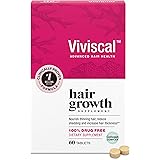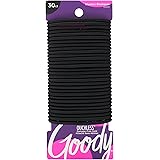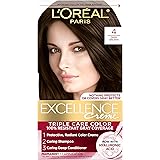Introduction to Glowing Skin
Glowing skin is often portrayed as a reflection of health, vitality, and youthfulness. It is characterized by a smooth texture, even tone, and a luminous appearance that seems to emanate from within. The term “glowing skin” encompasses several attributes, including hydration, radiance, and the overall clarity of the skin. Achieving this sought-after look is not merely a cosmetic goal; it represents an understanding of proper skincare practices, nutrition, and lifestyle choices that contribute to skin health.
Despite its desirability, the concept of glowing skin is shrouded in misconceptions. Many individuals believe that it can only be attained through the use of expensive products or makeup. However, the truth is that glowing skin originates from within. Factors such as diet, hydration levels, and skin care routines play a significant role in achieving this radiant appearance. Adequate exposure to sunlight and fresh air can also enhance skin’s natural glow, dispelling the notion that glowing skin requires complicated or costly interventions.
Moreover, it is essential to recognize that glowing skin does not equate to flawless skin. Flaws such as blemishes or discoloration can exist while still achieving an overall radiant complexion. The true essence of glowing skin lies in maintaining proper skin health and understanding individual skin types and conditions. Emphasizing skin health over perfection encourages a more realistic approach to beauty, focusing on nourishment and care rather than solely on appearance.
In the following sections of this guide, we will delve deeper into the secrets of achieving glowing skin, exploring actionable tips and methods that cater to various skin types and concerns. By understanding the foundation of glowing skin, one can better navigate their journey toward achieving this radiant look.
Secret #1: Hydration is Key
Hydration is one of the fundamental pillars for achieving glowing skin. The skin, much like any other organ, requires an adequate amount of water to maintain its health and vitality. When the body is sufficiently hydrated, it reflects in the skin’s appearance—resulting in a more radiant, plump, and youthful look. Insufficient water intake can lead to dry, flaky skin which diminishes its natural glow and can exacerbate conditions such as eczema and psoriasis.
Moreover, hydration goes beyond merely drinking water; it also involves utilizing hydrating products that support the skin’s moisture barrier. Moisturizers, serums, and masks, particularly those containing ingredients such as hyaluronic acid, glycerin, and aloe vera, can enhance the skin’s ability to retain moisture. These products not only provide immediate hydration but also help to lock in moisture long-term, which is critical for maintaining luminous skin.
Incorporating hydration into daily routines is essential for sustaining a healthy complexion. Start your day with a glass of water and continue to refresh yourself throughout the day, aiming for at least eight glasses to fulfill your daily requirement. You may also consider including hydrating foods in your diet—fruits and vegetables such as watermelon, cucumbers, and oranges are excellent choices. These foods can contribute to your overall hydration levels without the need for excessive water intake alone.
Furthermore, avoiding factors that lead to dehydration, such as excessive caffeine and alcohol consumption, will also aid in skin health. Environmental factors like sun exposure and air pollution can dehydrate the skin, so daily application of sunscreen and antioxidants is imperative. By placing a strong emphasis on hydration, both from inside and out, you create the optimal conditions for glowing skin.
The Power of a Balanced Diet
The link between diet and skin health is profound, influencing everything from texture to radiance. A balanced diet rich in essential vitamins and nutrients plays a crucial role in promoting glowing skin. Key nutrients include vitamins A, C, E, and various B vitamins, along with minerals such as zinc and selenium. Understanding how these elements benefit the skin can lead to better dietary choices.
Vitamin A is vital for skin repair and maintenance, promoting a smoother complexion. Foods high in beta-carotene, such as carrots, sweet potatoes, and spinach, are excellent sources. Meanwhile, vitamin C is essential for collagen production, helping to maintain skin elasticity and firmness. Incorporating citrus fruits, strawberries, and bell peppers into your diet can significantly boost vitamin C intake.
Vitamin E serves as an antioxidant, protecting the skin from damage caused by free radicals. Nuts, seeds, and green leafy vegetables are rich in vitamin E and should be included in a glowing skin diet. Additionally, B vitamins support the skin’s overall health by aiding in energy metabolism and reducing skin irritation. Whole grains, legumes, and avocados are beneficial sources of B vitamins.
Minerals also play a significant role in skin health. Zinc assists in wound healing and has anti-inflammatory properties, found in shellfish, pumpkin seeds, and lentils. Selenium helps protect the skin from UV damage and is present in Brazil nuts, sunflower seeds, and fish. Staying hydrated is equally important; drinking adequate water helps maintain moisture levels and flush out toxins, further contributing to a radiant appearance.
Incorporating a variety of these foods into your daily meals can greatly enhance skin health. By prioritizing a well-rounded diet filled with these essential nutrients, one can achieve and maintain glowing skin effectively.
The Role of Exfoliation
Exfoliation is a crucial step in any skincare routine aimed at achieving radiant and healthy skin. It involves the removal of dead skin cells from the surface of the skin, which not only enhances the texture but also promotes cell renewal. This process allows for better absorption of skincare products and can significantly improve the skin’s overall appearance. There are two primary types of exfoliation: physical and chemical.
Physical exfoliation utilizes gritty scrubs or tools to manually slough off dead skin cells. This method is effective but requires caution, as over-exfoliating can lead to skin irritation and damage. On the other hand, chemical exfoliation employs active ingredients such as alpha hydroxy acids (AHAs) and beta hydroxy acids (BHAs) to dissolve dead skin cells. Chemical exfoliants can penetrate deeper into the pores, making them suitable for various skin types, especially for those with oily or acne-prone skin.
When determining how often to exfoliate, it’s essential to consider your skin type and the products being used. Generally, those with sensitive skin may benefit from exfoliating once a week, while normal or slightly oily skin types might do well with exfoliation two to three times a week. It is advisable to monitor how your skin reacts and adjust the frequency accordingly to avoid any adverse effects.
Choosing the right exfoliating products is also key to effective exfoliation. For sensitive skin, gentle enzymes or mild scrubs with fine particles are recommended. For combination skin, a mix of physical and chemical exfoliants may provide the best results. Meanwhile, individuals with oily skin can benefit from stronger chemical exfoliants, such as salicylic acid, which can help unclog pores and reduce excess sebum production.
The Impact of Quality Sleep
Quality sleep plays a crucial role in maintaining skin health and achieving a radiant complexion. During sleep, the body undergoes various restorative processes, including the repair and rejuvenation of skin cells. This makes adequate sleep essential for anyone looking to enhance their skin’s appearance. Research indicates that when the body is deprived of sleep, it can result in increased stress hormone levels, such as cortisol, which may lead to skin issues including acne, inflammation, and premature aging.
Moreover, poor sleep quality can hinder the skin’s ability to retain moisture, leading to dryness and a lackluster appearance. During deep sleep, the body releases human growth hormone (HGH), which aids in tissue growth and repair. This hormonal surge helps in collagen production, which is vital for maintaining skin elasticity and smoothness. Therefore, making sleep a priority can significantly impact skin regeneration and overall skin health.
To establish a healthy sleep routine that boosts skin outcomes, consider implementing a few practical strategies. Start by aiming for 7-9 hours of uninterrupted sleep each night. Create a calming bedtime routine that includes winding down with relaxing activities, such as reading or meditative practices. Be mindful of your sleep environment as well; ensure that your bedroom is dark, quiet, and cool to promote restful sleep. Limiting blue light exposure from screens in the hour leading up to bedtime can further facilitate a more restful night.
Incorporating these habits can lead to noticeable improvements in skin quality. People often neglect the importance of sleep in their skincare routines, but prioritizing quality rest can indeed be one of the most effective secrets for achieving glowing skin.
Secret #5: Sun Protection is Non-Negotiable
Ensuring vibrant and glowing skin requires a multifaceted approach, and one of the most critical components is sun protection. Ultraviolet (UV) rays from the sun can have profound effects on the skin, contributing to premature aging, sunburn, and skin cancer. Prolonged exposure to UV radiation can lead to a breakdown of collagen and elastin fibers, resulting in fine lines, wrinkles, and a dull complexion. Therefore, incorporating effective sun protection into your daily skincare routine is essential for maintaining skin health and radiance.
There are various types of sun protection products available, including broad-spectrum sunscreens, which safeguard against both UVA and UVB rays. A broad-spectrum sunscreen with at least SPF 30 is recommended for daily use, as it provides adequate coverage for normal activities. It is essential to apply the sunscreen liberally and evenly to all exposed skin. Additionally, individuals with specific skin concerns, such as hyperpigmentation or a history of skin cancer, may benefit from higher SPF formulations or specialized sun protection ingredients like zinc oxide or titanium dioxide.
For effective sun protection, it is important to reapply sunscreen every two hours, especially after swimming, sweating, or towel drying. If you prefer a more convenient option, consider formulations such as spray sunscreens or tinted moisturizers that contain SPF. Moreover, seeking shade during peak sun hours, typically between 10 a.m. and 4 p.m., and wearing protective clothing—like wide-brimmed hats and UV-blocking sunglasses—can further enhance your defense against UV exposure.
Incorporating these sun protection measures into your daily routine not only helps to prevent damage but also promotes a healthy, glowing complexion that stands the test of time.
Regular Skincare Routine
A consistent skincare routine is vital for achieving and maintaining glowing skin. Regularly following a specific regimen helps to remove impurities, deliver nutrients, and promote cellular turnover, all essential factors for a radiant complexion. The first step in any successful routine is to identify your skin type, whether it is oily, dry, combination, or sensitive. This knowledge will guide you in selecting the most suitable products tailored to enhance your skin’s natural glow.
A basic skincare regimen typically includes three key steps: cleansing, toning, and moisturizing. For the cleansing phase, it is recommended to use a gentle cleanser that effectively removes dirt and makeup without stripping the skin of its natural oils. Those with oily skin might benefit from a foaming cleanser, while a cream-based cleanser may be ideal for individuals with dry or sensitive skin.
After cleansing, toning is essential for restoring the skin’s pH balance and preparing it for further treatment. Look for toners infused with natural ingredients such as witch hazel or rose water that can hydrate and soothe the skin. Applying a toner regularly can also help refine pores, which is crucial for achieving an overall polished appearance.
The final step, moisturizing, ensures that the skin remains hydrated throughout the day. A lightweight gel-based moisturizer is often the best choice for oily skin types, while creamier formulas can provide intensive hydration for drier skin. Additionally, incorporating serums rich in antioxidants, vitamins C and E, can significantly enhance the skin’s luminosity.
Lastly, don’t overlook the importance of sunscreen in your daily routine. UV protection is critical in preventing premature aging and maintaining a vibrant complexion. By establishing a regular skincare routine tailored to your specific needs, you can effectively cultivate and sustain glowing skin.
Secret #7: Stress Management Techniques
The relationship between stress and skin appearance is a well-documented phenomenon. When the body experiences significant stress, it produces hormones like cortisol, which can lead to a range of skin issues, including acne flare-ups, eczema, and premature aging. To maintain a radiant complexion, it is crucial to implement effective stress management techniques that can alleviate these adverse effects.
One of the most effective methods for managing stress is through mindfulness practices. Mindfulness encourages individuals to focus on the present moment, which helps to reduce anxiety and promotes a sense of calm. Techniques such as meditation, deep breathing exercises, and progressive muscle relaxation not only enhance psychological well-being but also have a positive influence on skin health. Regularly engaging in these practices allows the body to lower its cortisol levels, thus potentially resulting in improved skin clarity and texture.
In addition to mindfulness, incorporating physical activities into one’s daily routine can serve as a powerful stress reliever. Exercise triggers the release of endorphins—commonly known as “feel-good” hormones—which foster a sense of happiness and relaxation. Activities like yoga or brisk walking not only promote mental health but also enhance blood circulation, contributing to a more vibrant and glowing complexion.
Nourishing one’s body with a balanced diet rich in antioxidants, vitamins, and minerals also plays a critical role in stress management and consequently skin health. Consuming foods such as fruits, vegetables, nuts, and whole grains can help mitigate inflammation and support overall skin vitality. Hydration is equally essential, as adequate water intake can prevent dryness and promote a healthy glow.
By integrating these stress management techniques into daily life, individuals can significantly improve their skin’s appearance while simultaneously enhancing their overall well-being. This holistic approach is fundamental in the pursuit of achieving and maintaining glowing skin.
Secret #8: The Benefits of Facial Treatments
Facial treatments have long been regarded as a key component in achieving and maintaining radiant skin. These professional skincare services not only provide immediate aesthetic improvements but also contribute to long-term skin health. By selecting the right facial, individuals can address specific skin concerns such as dehydration, aging, acne, or hyperpigmentation. The diverse range of available facials, including hydrating, anti-aging, and exfoliating treatments, allows for a tailored approach to skincare.
Hydrating facials use moisturizing agents and oils to replenish dry or dehydrated skin, making it appear plumper and more radiant. Anti-aging facials incorporate ingredients like peptides and antioxidants to help reduce fine lines and wrinkles, promoting a younger-looking complexion. Exfoliating facials utilize techniques such as microdermabrasion or chemical peels to remove dead skin cells, thereby improving texture and tone. This variety enables individuals to choose treatments that align precisely with their skin’s needs.
During a professional facial, one can expect a rejuvenating experience that often includes cleansing, steam, exfoliation, and the application of masks tailored for specific concerns. Additionally, facial massages can enhance circulation, leading to improved nutrient delivery to the skin and a glowing appearance. For optimal results, it is advisable to consult a qualified skincare professional who can assess one’s unique skin type and recommend appropriate treatments.
When considering which facial treatment to pursue, be mindful of factors such as skin type, specific concerns, and the treatment’s intended outcomes. Clear communication with the skincare provider will ensure an informed decision is made to maximize the benefits of the chosen facial. Regular facial treatments can play a significant role in comprehensive skincare routines, fostering a lasting glow.
Secret #9: Lifestyle Changes for Lasting Results
Achieving and maintaining glowing skin extends beyond skincare products; it largely involves making significant lifestyle changes that support overall health. One of the most impactful changes you can implement is the cessation of smoking. Smoking not only narrows blood vessels, reducing circulation and oxygen flow to the skin, but it also contributes to the breakdown of collagen and elastin, essential proteins for skin firmness and elasticity. Eliminating tobacco use can drastically improve the health of your skin, leading to a more radiant appearance.
Physical activity is another crucial component that supports long-term skin health. Regular exercise increases blood circulation, delivering vital nutrients and oxygen to skin cells, which encourages a glowing complexion. Moreover, physical activity helps to unclog pores and flush out toxins through sweat, contributing to a clearer and healthier skin texture. Aim for at least 150 minutes of moderate aerobic activity each week, along with strength training exercises for additional benefits.
Additionally, moderating alcohol consumption plays an essential role in skin vitality. Excessive alcohol intake can lead to dehydration, diminishing the skin’s natural barrier and causing a dull and uneven appearance. Opting for moderation, or ideally, abstinence, can significantly enhance the skin’s luminosity and contribute to its overall health. It is essential to choose lifestyle changes that are manageable and sustainable, as this encourages consistency and reinforces long-term habits.
Ultimately, adopting these lifestyle modifications not only promotes glowing skin but also enhances overall well-being. The benefits are cumulative, leading to improved skin texture, firmness, and clarity. By prioritizing healthy habits such as quitting smoking, engaging in regular physical activity, and reducing alcohol intake, you can pave the way for lasting results in your skincare journey.






